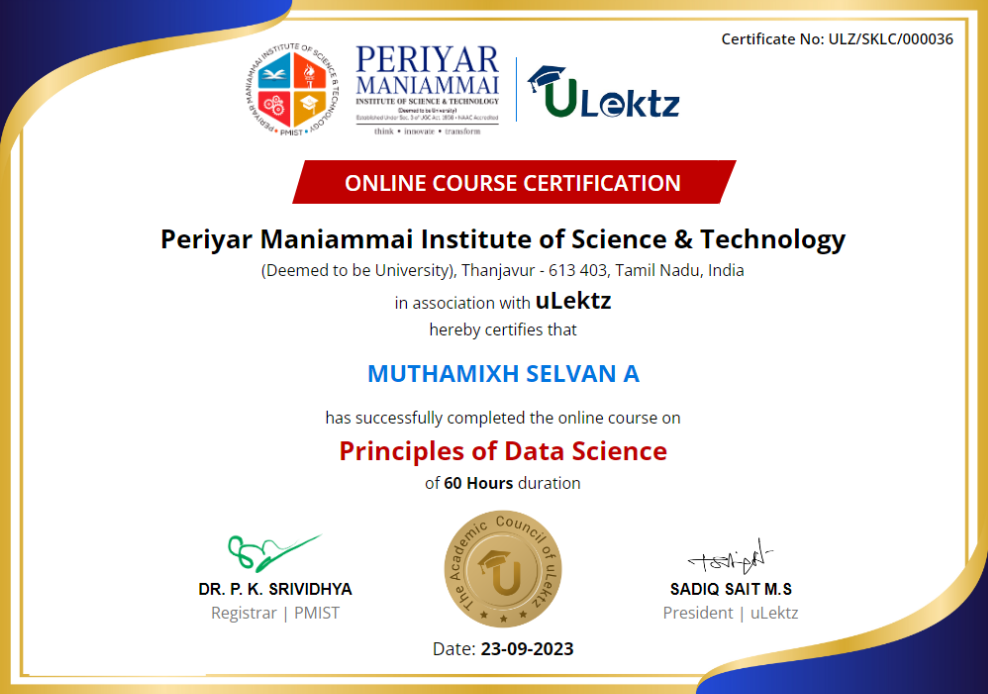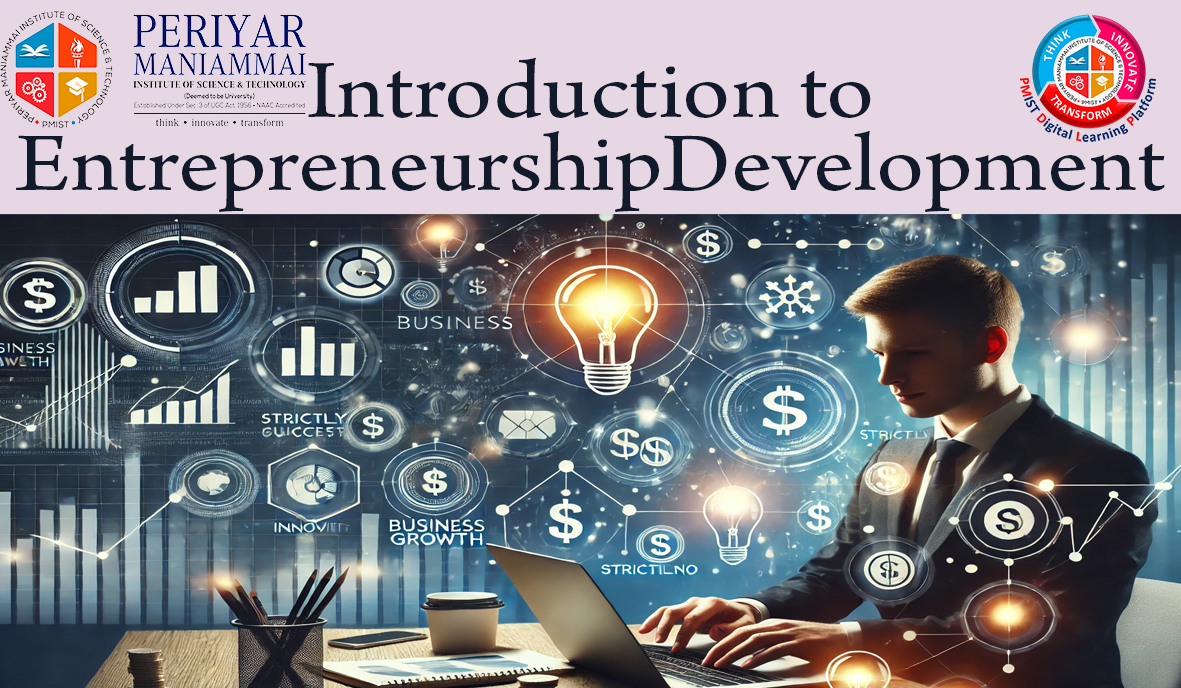

Note: Please check your Spam or Junk folder, in case you didn't receive the email with verification code.
Adaptive:Personalised Learning
Introduction to Entrepreneurship course explores ....
After successful completion of the course, the learners will be able to
Meaning and Concept of Entrepreneurship, History of Entrepreneurship Development, Role of Entrepreneurship in Economic Development, Myths about Entrepreneurs, Agencies in Entrepreneurship Management and Future of Entrepreneurship.
Why to become Entrepreneur, Skills/ Traits required for being an Entrepreneur, Creative and Design Thinking, Entrepreneurial Decision Process, Skill Gap Analysis, Role Models, Mentors and Support System, Entrepreneurial Success Stories.
.This module introduces students to the concept of development within its historical framework, highlighting the evolution and significance of entrepreneurship. It explores the interchangeability and symmetry between the meaning and concept of entrepreneurship while emphasizing its role in economic development. Additionally, the module addresses common myths surrounding entrepreneurship and examines the various agencies supporting entrepreneurial efforts, providing insights into the future of entrepreneurship.
 Module 1 : Introduction to Entrepreneurship
Module 1 : Introduction to Entrepreneurship
 ED - Module 1- Assessment
10 Questions
ED - Module 1- Assessment
10 Questions
 The Entrepreneur
The Entrepreneur
 ED - Module 2 - Assessment
20 Questions
ED - Module 2 - Assessment
20 Questions
This module explores the multifaceted world of entrepreneurship by delving into its defining features, principles, and roles. It begins by examining the characteristic traits of successful Indian entrepreneurs, such as visionary leadership, innovative thinking, risk-taking ability, and adaptability. Through real-world examples like Ratan Tata and Mukesh Ambani, students will understand how these qualities contribute to entrepreneurial success. The module also addresses the distinctions between key roles in business, such as entrepreneurs, managers, and intrapreneurs, highlighting their unique functions, decision-making styles, and focus areas. It further elaborates on the relationship between entrepreneurs, their mindset, and the process of entrepreneurship, emphasizing innovation and strategic thinking. Additionally, it differentiates entrepreneurs from scientists and inventors, focusing on their distinct goals and outputs.
 Characteristics of an Entrepreneur
Characteristics of an Entrepreneur
 ED - Module 3 - Assessment
20 Questions
ED - Module 3 - Assessment
20 Questions
This chapter explores the essential business management skills required for entrepreneurs to successfully start, manage, and grow their ventures. It covers a wide range of competencies including communication, critical thinking, risk-taking, leadership, financial literacy, and customer service. Through real-life examples, case studies, and practical tips, this chapter emphasizes the development of both soft and technical skills essential for entrepreneurial success. Special focus is given to understanding how these skills interrelate and contribute to effective decision-making, innovation, and sustainable business growth.
 Skills for an Entrepreneur
Skills for an Entrepreneur
 ED - Module 4 - Assessment
20 Questions
ED - Module 4 - Assessment
20 Questions
This chapter explores the concept of Intrapreneurship, its significance in modern businesses. How organizations cultivate entrepreneurial thinking among employees. It discusses the types, characteristics, and benefits of intrapreneurs, providing real-world examples of successful intrapreneurship initiatives.
 Intrapreneurship
Intrapreneurship
 ED - Module 5 - Assessment
20 Questions
ED - Module 5 - Assessment
20 Questions
 ED - Final Assessment
50 Questions
ED - Final Assessment
50 Questions
The certificate issued for the Course will have
Only the e-certificate will be made available. No Hard copies. The certificates issued by Periyar Maniammai Institute of Science and Technology. can be e-verifiable at www.ulektzskills.com/verify.



 30 hours Learning Content
30 hours Learning Content 100% online Courses
100% online Courses English Language
English Language Certifications
Certifications